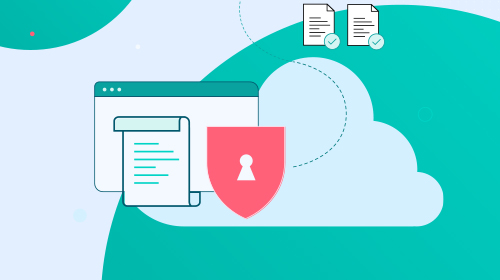

File Transfer & Information Security Blog
Featured Articles

-
Security Update for WS_FTP Server Customers
On September 27, 2023, WS_FTP Server customers were notified and provided a patch that addressed several vulnerabilities in WS_FTP Server in WS_FTP Server Ad hoc Transfer Module, WS_FTP Server's SSH module and in the WS_FTP Server.
-
Announcing the MOVEit Service Pack Program
Lilia Messechkova | | File Transfer | Security
We now have a Service Pack program for MOVEit products, available through the MOVEit Product Hub.
-
Detecting Suspicious Activity within the MOVEit Environment and General Responses to Data Exfiltration
In light of the recent vulnerabilities (CVE-2023-34362) and (CVE-2023-35036) affecting our MOVEit Transfer and MOVEit Cloud products, we want to help provide our customers with information to help them react quickly to potential risks to the MOVEit Transfer and MOVEIt Cloud vulnerabilities.
-
Working to Enhance the Security of MOVEit Transfer Products through Partnership and Transparency
This post provides information about the latest updates as it relates to the security of our MOVEit Transfer and MOVEit Cloud products.
-
An Update on the Steps We are Taking to Protect MOVEit Customers
To best serve our MOVEit customers and provide the information they need to protect their environments, we will continue to be as transparent as possible regarding the recently discovered vulnerability within MOVEit Transfer and MOVEit Cloud.
-
6 Secure File Transfer Practices You Can Use Today
Avoid potentially catastrophic consequences of a data breach—implement these file transfer best practices to keep your files safe and secure.
-
7 Ways to Keep Your Business Files Safe and Protect Your Data
John Iwuozor | | Security
The secure transfer of information and digitized records is imperative for business. In this post, learn seven effective ways to keep your business files safe.
-
Secure File Transfer—Protecting Personal Information and PII
Doug Barney | | Security
Personal Identifying Information (PII) must be secure and in compliance.
-
Top Secrets to Secure File Transfer for State, Local and Federal Governments
Doug Barney | | Security
Citizens rely on their governments and agencies to keep their data safe.
-
Secure File Transfer: The Beauty of Managed File Transfer (MFT) Solutions
Doug Barney | | Security
For enterprise-scale secure file transfers, Managed File Transfer (MFT) is the only way to go.
-
Announcing MOVEit 2022.1
David Perez | | File Transfer | IT Insights
Announcing MOVEit 2022.1 with Support for Microsoft SQL in AWS RDS and More!
-
Secure File Transfer—Is FTP Safe? No. Fortunately, MFT Is!
Doug Barney | | Security
FTP seems a solid file transfer solution, but there are lots of devils in the details.
-
OpenSSL Vulnerability: What You Need to Know
The Progress Security Team | | Security
On November 1, 2022, The OpenSSL Foundation released OpenSSL version 3.0.7. This release is a security-fix and addresses two “High” severity vulnerabilities. Advanced notice was shared by the OpenSSL Foundation last week, alerting the industry of the vulnerability and upcoming patch.
-
File Transfer Security—Protecting Sensitive Data
Doug Barney | | Security
Sensitive data deserves full protection.
-
Foxes & Hedgehogs: Get Your Cloud Managed File Transfer (MFT) Strategy Right
David Perez | | Cloud
If you are thinking about how best to develop your Cloud strategy and how Managed File Transfer (MFT) fits into it, you might benefit from a closer look at hedgehogs and foxes.
-
Email Unsafe for Transferring Sensitive Files: How COVID Made it Worse
Doug Barney | | Security
Remote work has increased email security vulnerabilities, exposing files in transit.
-
Does Your Enterprise File Security Strategy Have These 6 Key Components?
Stop whatever you’re doing and take a look at these 6 key components of an enterprise file security strategy. Form the gist of your file protection strategy right now!
-
Secure File Transfer Banks and Financial Firms Can Count On
Doug Barney | | Security
Enterprises dealing with loads of money must invest in file security.
-
Encryption and File Transfer: Top Secure Encryptions for File Transfer
All you ever wanted to know about file transfer encryption—encryption algorithms, layers and the encrypted file transfer protocols that bring the two together.

















